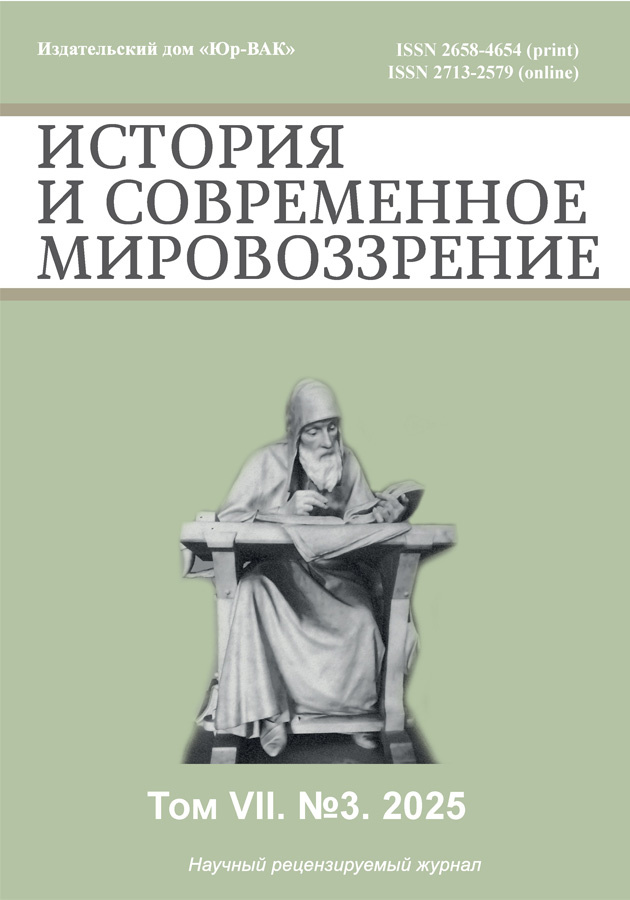International grain conferences and Russia: to study the institutions of the world market at the beginning of the 20th century
- Authors: Tagirova N.F.1
-
Affiliations:
- Samara Federal Research Center of the Russian Academy of Sciences
- Issue: Vol 7, No 3 (2025)
- Pages: 79-86
- Section: ECONOMIC HISTORY
- URL: https://journals.eco-vector.com/2658-4654/article/view/695633
- DOI: https://doi.org/10.33693/2658-4654-2025-7-3-79-86
- EDN: https://elibrary.ru/hdekwq
- ID: 695633
Cite item
Abstract
The study of institutional aspects of the world grain market at the beginning of the 20th century allows us to identify deep, often invisible on the surface of historical events, economic and business interests of its participants, underlying international trade transactions. While they formed the legal field of the world market. An important place in it was occupied by international grain conferences, which were held since 1904, in which Russia took an active part. Based on documents on the activities of Russian business (materials of the Congresses and Councils of Congresses of Representatives of Exchange Trade and Agriculture) and government agencies, the "mechanism" of the civilized ingrowth of the Russian domestic grain market into the world market is shown. It consisted of actions on weight standardization, analysis of quality and purity of exported grain, insurance and legal support of the transaction. All these issues were reflected in the German-Dutch type of grain contracts discussed at international grain conferences. This type of grain contracts, compared to the Anglo-Saxon one, took into account the interests of the Russian grain business to a greater extent. Further development of institutional aspects of the world grain market will allow us to better understand many actions of Russia's domestic trade policy, as well as the scale and depth of the transformation of the national economy in the context of early globalization in 1870–1914.
Full Text
About the authors
Nailya F. Tagirova
Samara Federal Research Center of the Russian Academy of Sciences
Author for correspondence.
Email: tag-nailya@yandex.ru
SPIN-code: 9842-5919
Dr. Sci. (Hist.), Professor, Senior Researcher at the Department of History and Archeology
Russian Federation, SamaraReferences
- Auzan A.A. Cultural codes in economics. How values influence competition, democracy and welfare of the people. M. 2022. 160 p. (in Rus.).
- Kitanina T.M. Russian grain trade in the late 19th — early 20th centuries. Survival strategy, modernization processes, government policy. St. Petersburg, 2011. 608 p. (in Rus.).
- Narykova N.M. International instruments for protecting Russia's agrarian interests on the eve of the First World War // North-West in the agrarian history of Russia. Interuniversity thematic collection of scientific papers. Issue 24 / Ed. V.N. Nikulin Kaliningrad, 2018. Pp. 157–164. (in Rus.).
- Narykova N.M. Russia and the International Institute of Agriculture in Rome: Diplomacy, Ideology, Pragmatism (1905–1945). Modern and Contemporary History. Vol. 66, No. 3, 2022. Pp. 125–139. (in Rus.).
- Rodnov M.I. The space of the grain market (Ufa province in the late 19th — early 20th centuries. Ufa. 2012. 224 p. (in Rus.).
- Sokolov V.V. The British Empire as a Geoeconomic System (1603–1972). Moscow, 2012. 159 p. (in Rus.).
- Tagirova N.F. Geopolitical “Rules” and the Organization of International Grain Trade at the Beginning of the Twentieth Century. Studies in Foreign History. 2023. Issue 3. Pp. 320–338. (in Rus.). doi: 10.55000/SemConf.2023.3.3.023.
Supplementary files










